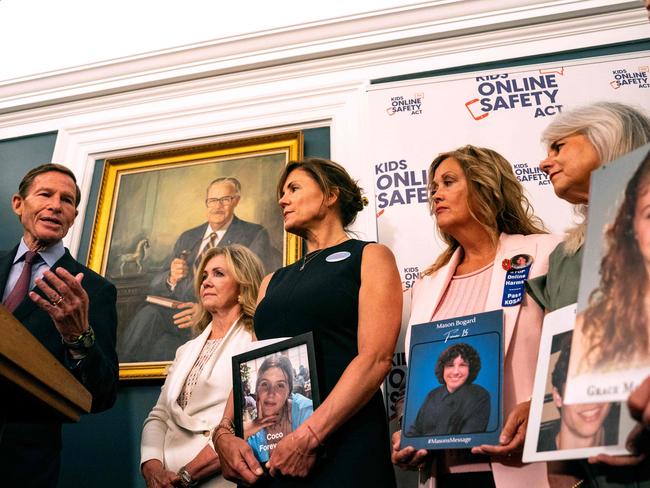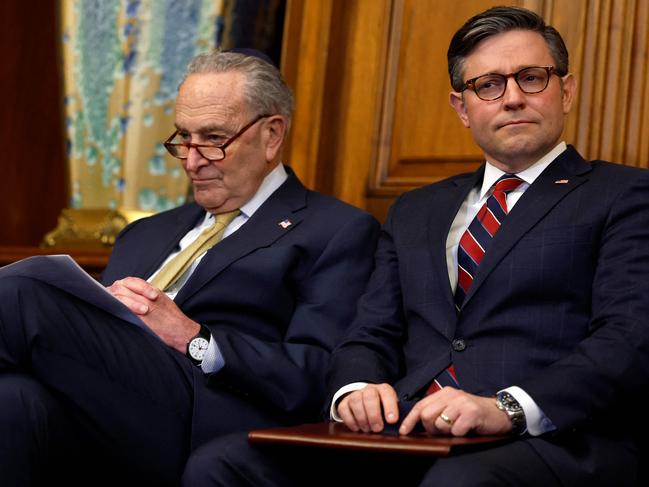US Senate passes historic social media laws to protect kids
The likes of Facebook and Twitter have responded after the US Senate actioned the most significant online safety overhaul in decades.
World
Don't miss out on the headlines from World. Followed categories will be added to My News.
The US is on the verge of taking its most significant action in decades to improve online safety, with the Senate passing sweeping new laws to protect kids and rein in the social media giants.
In the midst of a fierce election battle, the Senate voted 91-3 in favour of the reforms, with US President Joe Biden now urging its swift passage through the House of Representatives.
Under the Kids Online Safety Act, social media companies would face a legal duty to ensure their platforms did not fuel mental health problems, suicide, eating disorders, bullying and sexual exploitation.
Children and their parents would be given access to a range of new safety tools on social media, including opting out of personalised algorithms, disabling addictive features such as autoplaying videos and platform rewards, and limiting communication with adult users.
The strongest possible safety settings would be in place for minors by default.
“There is undeniable evidence that social media and other online platforms contribute to our youth mental health crisis,” Mr Biden said.

“Our children are subjected to a wild west online and our current laws and regulations are insufficient to prevent this. It is past time to act.”
Connecticut senator Richard Blumenthal, a co-author of the legislation, said it would “literally save lives” at what he called a “moment of reckoning” for the social media giants.
“They knew of the harm to young people and purposefully persisted in profiting from it … These companies have repeatedly betrayed our trust,” he said, adding that the reforms would give children “the tools and safeguards to take back their online lives”.
Democratic Senate leader Chuck Schumer described the reform package – which also included stronger privacy protections and restrictions on targeting advertising to kids – as “the most important updates to federal laws protecting kids on the internet in decades”.
“These bills have real bipartisan momentum, so we should seize the opportunity to send them to the President’s desk,” he said.
Republican House Speaker Mike Johnson said he was hopeful the House would give the green light to the laws before the congressional term ended in January.
“We’re looking at details of it. Obviously, I believe in the purpose of the legislation. I think it’s really important,” he said.

“There’s a couple of questions we have about the details, but I think we can work it out and I’d like to get it done.”
The reforms received a mixed response from the social media giants, with Snapchat’s parent company and X – formerly known as Twitter – supporting the legislation.
A spokesman for Meta, the parent company of Facebook and Instagram, said the social media giant backed “the development of age-appropriate standards for teens online” but preferred laws that would require parental approval for teenagers downloading apps.
NetChoice – an industry body representing companies including Meta, Snap and X – mounted a last-ditch bid to block the legislation in the Senate because it said it failed to “meet basic constitutional principles” and would not “make a single child safer online”.
“Taking away parents’ and guardians’ authority and choice, while forcing them to give up their and their children’s personal information to access and engage in free speech, is both dangerous and a violation of their rights,” NetChoice vice president Carl Szabo said.
NetChoice has already mounted lawsuits challenging several state-based crackdowns on social media.





